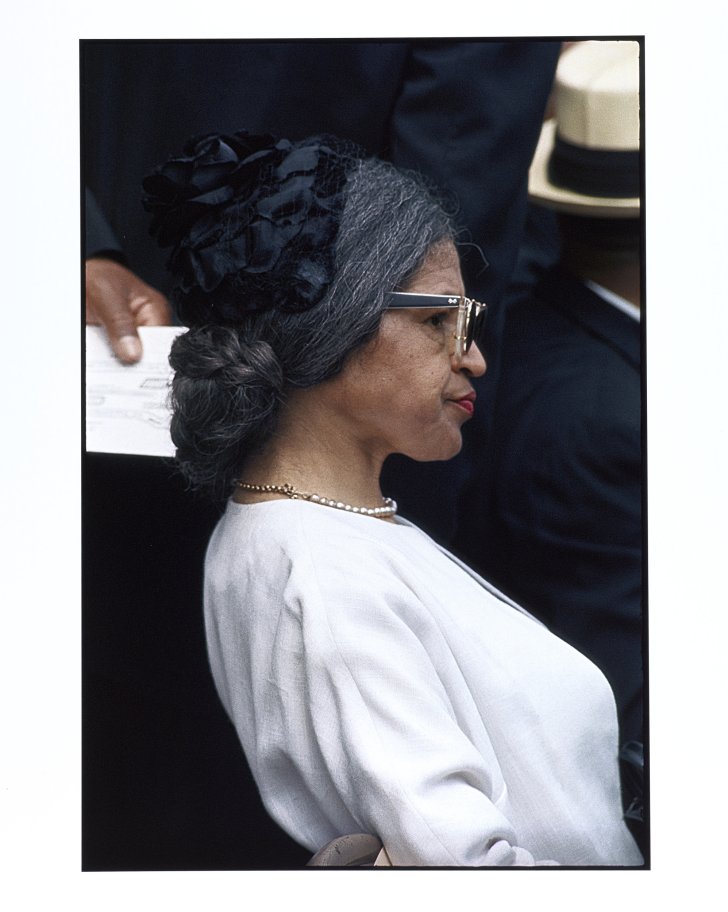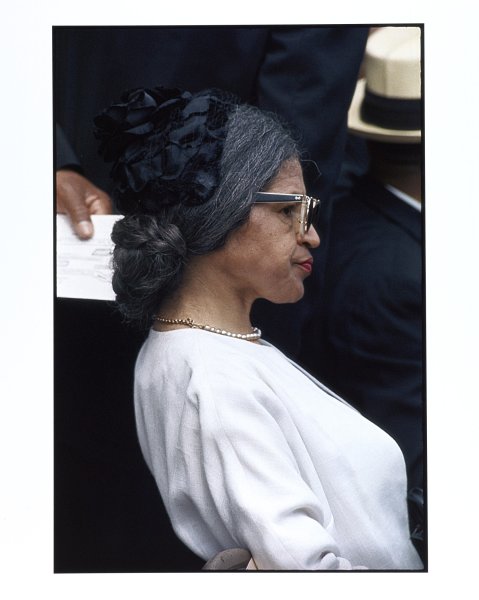Rosa Parks

Gordon Parks (American, 1912–2006). Untitled, Washington, D.C. from the portfolio I AM YOU, 1963 (published 2017). Archival pigment print, edition 7/25 from an edition of 25 plus 5 artist's proofs, 20 x 16 inches (50.8 x 40.6 cm). Collection Albright-Knox Art Gallery, Buffalo, New York; Elisabeth H. Gates Fund, by exchange and Gift of A. Conger Goodyear, by exchange, 2017 (P2017:11.2.11). © Courtesy of and copyright The Gordon Parks Foundation
Widely lauded as the “Mother of the Civil Rights Movement,” Rosa Parks’s commitment to the pursuit of racial justice both predated and extended long after her famous refusal to move to the back of a segregated bus in December 1955. Parks’s act of civil disobedience instigated a 381-day boycott of Montgomery’s bus system, led by a then relatively unknown Martin Luther King, Jr. By the time of the Montgomery Bus Boycott, however, Parks had been involved with the Civil Rights movement for nearly twenty years. As a member and secretary of the Montgomery branch of the NAACP, Parks was particularly dedicated to bringing awareness to the era’s widespread sexual violence against African American women by white men and to mobilizing young people in the struggle against oppression.
Parks and her family faced pervasive persecution for her role in the Montgomery Bus Boycott, and in 1957, they moved to Detroit. Throughout the 1960s, Parks remained an active voice in the movement, participating in Southern Christian Leadership Conference conventions, the 1963 March on Washington, and the 1965 Selma to Montgomery March. Parks’s historic contributions in service of equity and freedom have been recognized with numerous awards, including the Spingarn Medal, the NAACP’s highest award, in 1979, as well as the United States’s two most prestigious civilian honors: the Presidential Medal of Freedom in 1996 and the Congressional Gold Medal in 1999.


